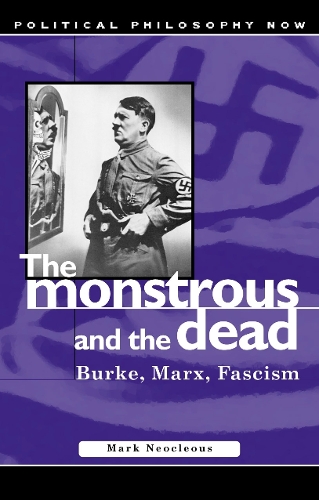
The Monstrous and the Dead: Burke, Marx, Fascism
(Paperback)
Available Formats
Publishing Details
The Monstrous and the Dead: Burke, Marx, Fascism
By (Author) Mark Neocleous
University of Wales Press
University of Wales Press
9th January 2006
United Kingdom
Classifications
Tertiary Education
Non Fiction
320.01
Physical Properties
Paperback
160
Width 138mm, Height 216mm
263g
Description
What is the political function of monstrosity What is the nature of our political relationship with the dead Why are the undead so threatening In The Monstrous and the Dead, Mark Neocleous explores such questions as they run through three major political traditions: conservatism, Marxism and fascism. One of the things uniting these otherwise opposing traditions is that they share a common interest in the dead. This is therefore a book about the politics of remembrance, showing that how and why the dead register in our political lives constitutes a major dividing line for the political traditions in question: are the dead to be reconciled with the living in a conservative fashion, resurrected for the cause of fascism or are their hopes and struggles to be redeemed for a communist future Exploring these issues reveals that, as well as leaving traces in memories, dreams and unfulfilled wishes, the dead also generate fears, most notably the fear that they are not really dead: they are undead and thus monstrous. The book therefore simultaneously considers the function of monstrosity as a rhetorical political device: in Burke's response to the monstrous revolution, Marx's use of the vampire and fascism's concept of the Marxist-liberal-Jewish menace. The outcome is an original reading of key thinkers and movements in western politics, a provocative account of the role of political metaphor and an eclectic argument concerning the place of the dead in historical struggles.
Reviews
'...a book written with all the stylish elegance one would expect of a doyen of Radical Philosophy...' Radical Philosophy
Author Bio
Mark Neocleous teaches politics at Brunel University, UK. His previous books include Administering Civil Society (1996), Fascism (1997), The Fabrication of Social Order (2000) and Imagining the State (2003). He is an editor of Radical Philosophy.
